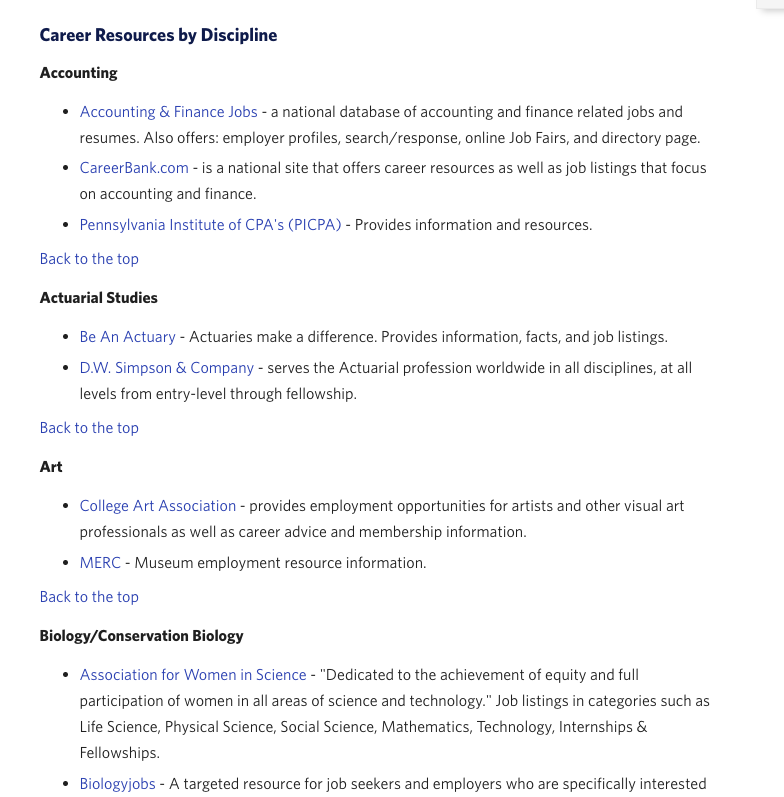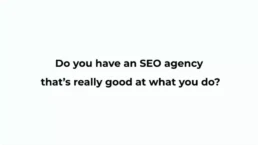by Venchito Tampon Jr | Last Updated on October 24, 2021
Every pitch receives a yes or a no. In resource outreach (more often known as broken link building), a “no” isn’t a direct response of “no”. Instead, a “no” is a reason of so many reasons why a webmaster or the person managing the page couldn’t give your desired resource link.
1. NOT CURRENTLY UPDATING THE PAGE

No matter how good the content is, if the page you’re pitching to isn’t currently open to any link updates, you won’t be able to get the link.
So instead of crafting a lengthy email to describe your guide, try sending a short pitch first to ask if they’re open for new link suggestions. An email may look something like this:
Just saw your note on your online job hunting page about new suggestions, so thought I’d check and see if you’re still updating the page. If you are, I’m happy to pass along a few new resources for review. If not, can’t say I didn’t ask!
The reason this is important is because you’re starting a small conversation first, not taking advantage immediately of the link opportunity with a heavy pitch. You respect the person’s time by asking if he or she considers resource suggestions, thus, you come off as less aggressive.
The sooner you get a “Yes” response from this approach, that’s the time you can now describe how your content can best fit their links page and their audience.
2. REQUEST OVERLOAD AND SUFFICIENT RESOURCES
With so many SEOs building links to their sites/clients using the same link building strategy (broken link building), it’s highly possible that a resource page is getting pitched almost every single day.
Take a look at these emails we’ve got:
(Request Overload)
 (Sufficient Resources)
(Sufficient Resources)

Obviously there are hundreds, if not thousands, of webmasters receiving similar messages like the one above. It’s a reality that you’re not the only person pursuing for the same link opportunity. A competition among SEOs/link builders gunning for the same link prize is considered to be a problem, but can also be an opportunity.
If you consider this dilemma problem upfront, you can give yourself an opportunity to ask yourself questions regarding your content before actually pitching them to your link prospects.
One question you can ask is, “Does the content I’m suggesting have competing/similar content pieces on the links page?”. What I mean with competing is if you have a “resume templates” guide, does the links page have resume links too? If you cater to both niche audience with the same information, but don’t necessarily mean you’re competing for the same keywords, that particular content piece is your content competitor.
You may as well check what keywords in URLs those resume links are trying to rank for. If they target the same as your content piece, it may also be considered as your competing content.
Two reasons why you need to check for competing content assets:
A. Know if your content asset fits a subtopic/sub-section of the links page.
This is a good idea because you know that there’s a reason for the webmaster to insert a link to your page, as it fits into a category. It’s less likely that a webmaster will create another section of the page to just give you the link if in case your content piece doesn’t fit to any section.
B. Check if you can fill an informational gap.
To fill an informational gap, you can either create a better version of the content than anyone else (10x content) or provide a unique value (either in format/angle of the topic).
Place yourself in the webmaster’s shoes. Ask yourself, why do I need to add the suggested resource on my links page considering there are two or three resource links covering the topic already?.
This question sets the bar of your content’s quality – increasing your chances to get
For overload requests, the difference-maker in getting the resource link is your content’s comprehensiveness and utility that fills in the gap in the category/information of the resource page.
3. NO CURRENT PERSONNEL TO ADDRESS

It’s frustrating to know that the reason you don’t get the resource link is not because your content sucks, but there’s nobody currently taking care of the resource page.
While there are some high-authority websites with ready-correct department – a group of people who ensures every resource link is reviewed to pass certain standards before they actually go live, there are a lot of other links pages with no current personnel handling them.
We’ve found that one way to ensure you’re not missing those link opportunities is to mark the resource page or create a new tab that includes all of the link opportunities with no current personal addressing them. Then you can set a schedule time to follow up these links after two months.
You’ve done a lot of work to prospect the opportunity and write an outreach email, so it’s a failure to get the potential equity it’d have been developed if you didn’t follow up the person.
4. SOON TO DEATH RESOURCE PAGE

It’s easy to jump off to another link opportunity when your target links page is going to be killed either because it’s of no use to the webmaster or the department/personnel is not updating it anymore.
It happens, but there’s a chance they might be creating a new links page with the same topic.
I recommend sending a follow up after a month, asking if they have a new resource page your content might be a good fit is a less work but can gain a return in outreach.
Other Useful Resources
So, those are the four reasons why you don’t get resource links and tips on how to pre-solve those problems.
If you liked this post, subscribe to our newsletter and follow me on @venchito14.
Need help with your link building campaigns? Check out our link building services here.
The Author
Venchito Tampon Jr
Venchito Tampon is a Filipino Motivational Speaker, Corporate Trainer, and a Leadership Speaker in the Philippines. He is the CEO and Co-Founder of SharpRocket, a link building agency. With a decade of experience, Venchito has a proven track record of leading hundreds of successful SEO (link builidng) campaigns across competitive industries like finance, B2B, legal, and SaaS. His expert advice as a link building expert has been featured in renowned publications such as Semrush, Ahrefs, Huffington Post and Forbes. He is also an international SEO spoken and has delivered talks in SEO Zraz, Asia Pacific Affiliate Summit in Singapore, and Search Marketing Summit in Sydney, Australia. Check out his other businesses, Hills & Valleys Cafe, Blend N Sips and Saas Pursuit.
How our LINK BUILDING AGENCY builds 250 links/mo consistently using Predictable Link Building Methodology™…
- Using a SIMPLE and PROVEN system
- Using a SCALABLE strategy
- No private blog networks
- No creepy outreach emails

